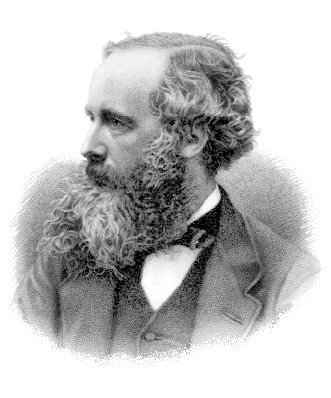The modern scientific education is associated to rigor ; it extols the power of reason over feelings. Rising above other mere mortals, the scientist has a grand vision of what he should accomplish, and sets himself to work, wielding an impressive array of mathematical tools. In contrast, the poet seems to err without a definite goal, writing words after words in some everlasting quest for beauty.

By George J. Stodart - Frontpiece in James Maxwell, The Scientific Papers of James Clerk Maxwell. Ed: W. D. Niven. New York: Dover, 1890., Public Domain, Link
I’m no poet. I’m more of a scientist by training. As such, I have a great admiration for James Clerk Maxwell. To defeat the stereotypes, he was an outstanding physicists who wrote poetry. His poems are little known gems. I recently found this one, entitled “Molecular Evolution”.
Molecular Evolution, by J.C. Maxwell
At quite uncertain times and places,
The atoms left their heavenly path,
And by fortuitous embraces,
Engendered all that being hath.
And though they seem to cling together,
And form “associations” here,
Yet, soon or late, they burst their tether,
And through the depths of space career.So we who sat, oppressed with science,
As British asses, wise and grave,
Are now transformed to wild Red Lions,
As round our prey we ramp and rave.
Thus, by a swift metamorphosis,
Wisdom turns wit, and science joke,
Nonsense is incense to our noses,
For when Red Lions speak, they smoke.Hail, Nonsense! dry nurse of Red Lions,
From thee the wise their wisdom learn,
From thee they cull those truths of science,
Which into thee again they turn.
What combinations of ideas,
Nonsense alone can wisely form!
What sage has half the power that she has,
To take the towers of Truth by storm?Yield, then, ye rules of rigid reason!
Dissolve, thou too, too solid sense!
Melt into nonsense for a season,
Then in some nobler form condense.
Soon, all too soon, the chilly morning,
This flow of soul will crystallize,
Then those who Nonsense now are scorning,
May learn, too late, where wisdom lies.
Now, that’s a piece of philosophy of science. It got me thinking.
Randomness in science
This poem deals with the exploration/exploitation tradeoff and the necessity of having a fair share of exploration in science. Which means that you may have to walk on paths forbidden by reason. Of course, reason shouldn’t be entirely forgotten: for nonsense to crystallize into some nobler form, one needs to discern the emerging patterns in the outburst of ideas. Indeed, what Maxwell say is to try random combinations of ideas. Take the risk to be ridiculed. Get creative.
Interestingly, this is also the conclusion of a 2015 paper from the British Journal for the Philosophy of Science, entitled Conservatism and the Scientific State of Nature, in which the authors conclude:
…that governments and foundations should reverse the general trend and intervene to encourage risky science beyond what would occur without their intervention.
The authors modeled the scientists as bandits: a scientist can chose to work on the project that looks the most promising or to experiment with new, radical alternatives. It turns out that if all scientists have the same incentive to choose the safe path, it is detrimental to the progress of science, which involves following crazy ideas.

By Yamaguchi先生, CC BY-SA 3.0, Link
A big question in Philosophy of Science is the demarcation between what is science and what is not. What are bandits, and how the demarcation question can be reinterpreted within a bandits framework is an interesting topic. I’ll try to write more about it in a sequel to this post. Meanwhile, I just want you to remember that randomness is good, because it allows exploration.
Quoting the same paper:
The history of science is filled with stories of the crazy idea that turned out to be right.
Let’s follow Maxwell the poet, and fill History of Science with more nonsense.
Tweet